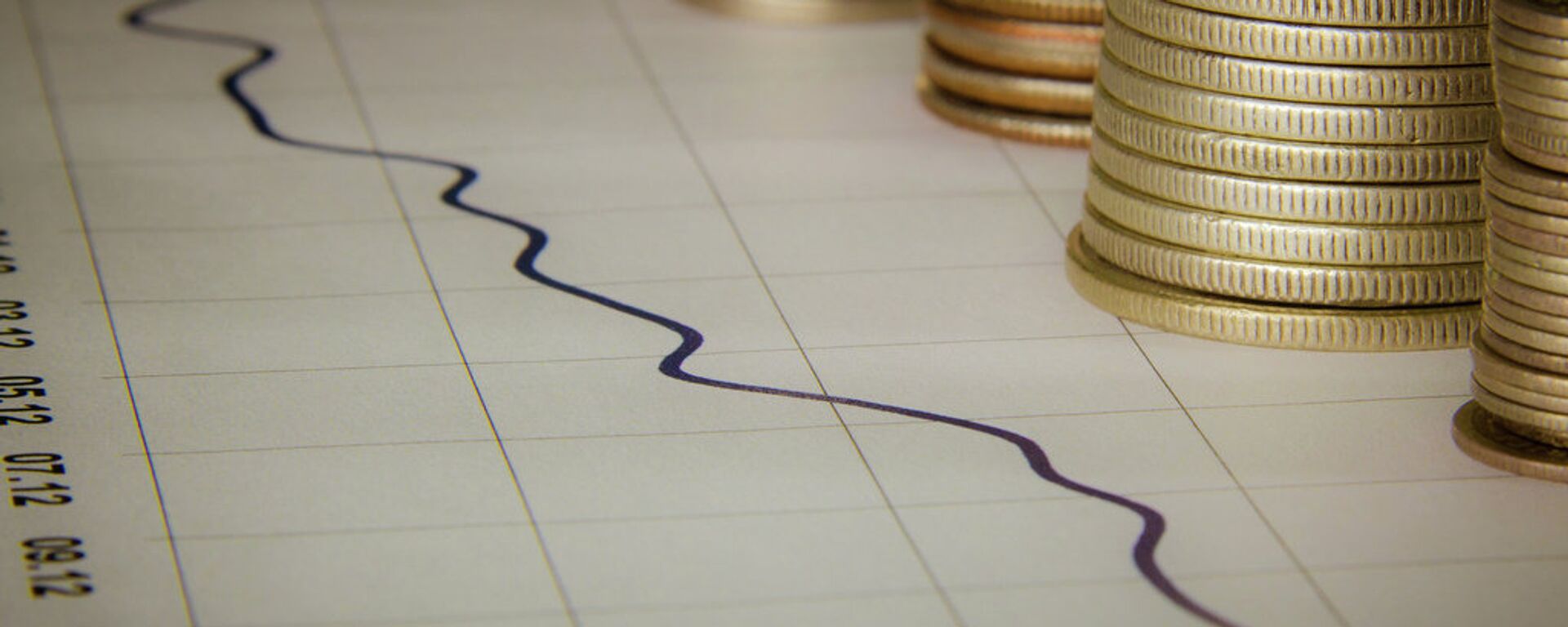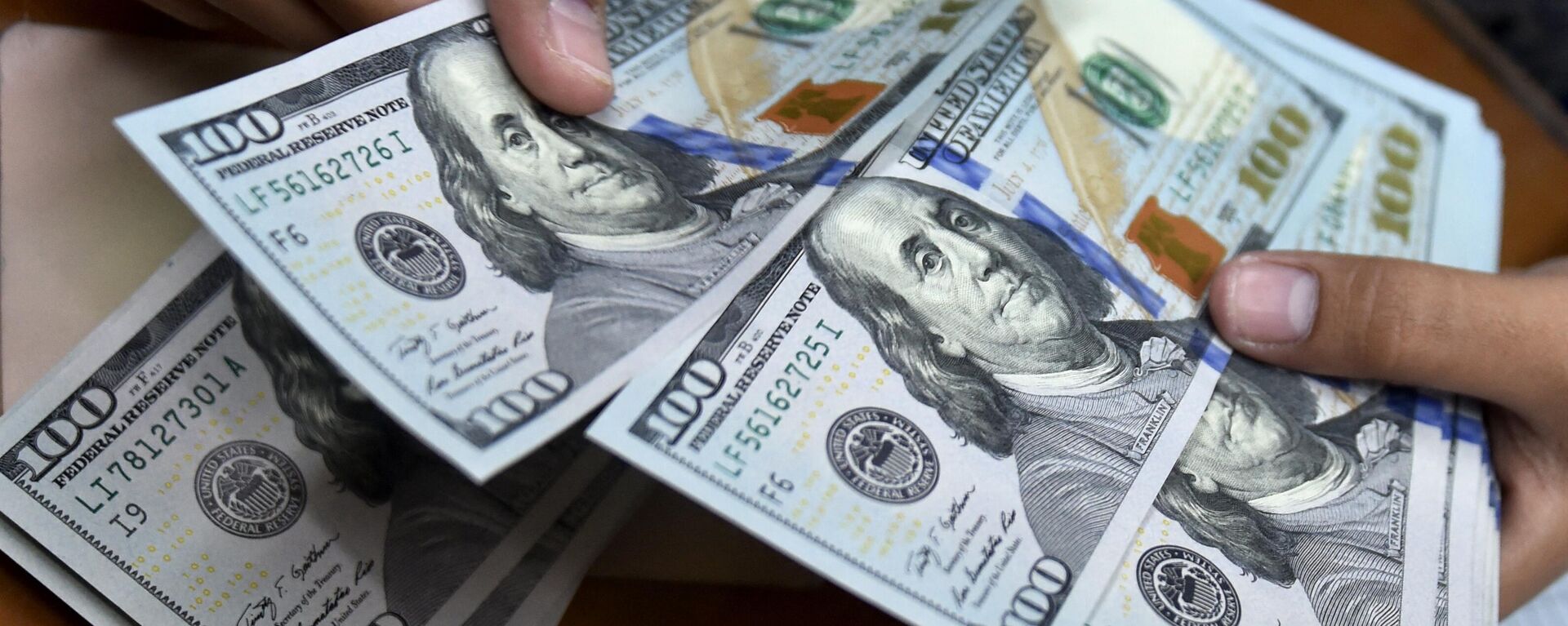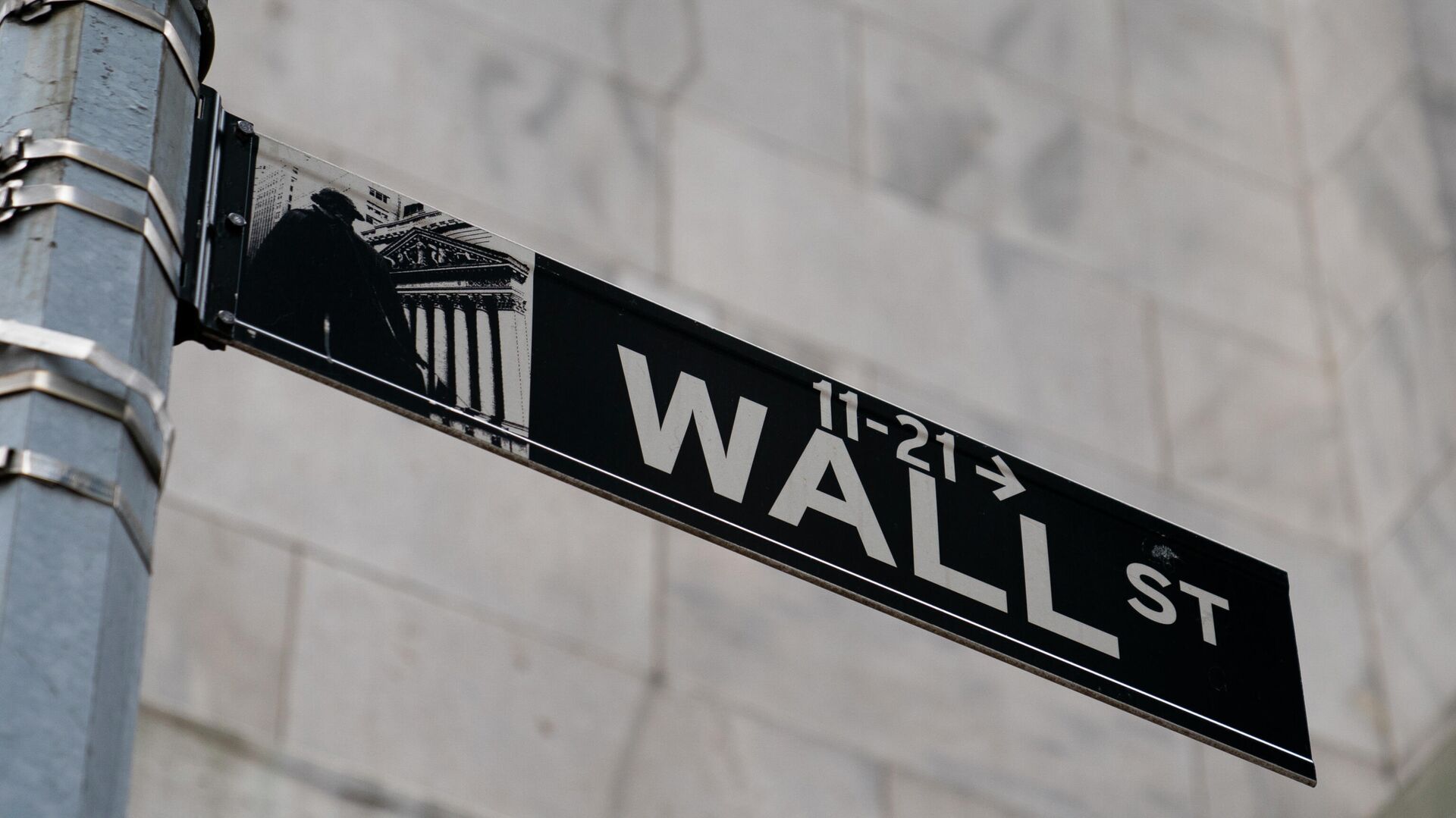https://sputnikglobe.com/20230919/why-wall-street-economists-believe-us-recession-is-around-the-corner-1113505608.html
Why Wall Street Economists Believe US Recession is Around the Corner
Why Wall Street Economists Believe US Recession is Around the Corner
Sputnik International
American economists warn that the US may fall into a recession in 2024, as quoted by the mainstream press.
2023-09-19T18:56+0000
2023-09-19T18:56+0000
2023-09-19T18:56+0000
us
americas
federal reserve
joe biden
brent
us economy
economic recession
recession
inflation
oil price
https://cdn1.img.sputnikglobe.com/img/07e5/0b/09/1090606360_0:161:3071:1888_1920x0_80_0_0_c62ca1403663e9a5ffc91d9024fd391e.jpg
Most Wall Street economists still expect a recession over the next year, citing odds of around 60% and expressing skepticism of the Federal Reserve's soft landing promises.So, what's behind the skeptics' rationale?First, they believe that the consumer spending spree might be losing steam as the public's savings – which Americans accumulated during the COVID pandemic, are fading. Given that personal consumption constitutes roughly 70% of the US economy, decreased spending would spell trouble for the US economy.Second, oil prices are going up again. Oil prices have climbed to over $90 per barrel and hit 10-month highs this week. Some Wall Street analysts do not rule out that the Brent benchmark may reach $100 "for a short while" amid output cuts and geopolitical tensions. Per the US media, gasoline prices appear to be approaching $4 a gallon on average: pain at the pump may cool consumer spending further.Moreover, higher energy prices may accelerate inflation, prompting the Federal Reserve to keep rates high for quite a while. It's no secret that high borrowing costs hinder economic growth.In July, the Fed raised the rate by 25bps to 5.25%-5.5%. In the aftermath of the hikes, the average credit card rate is now more than 20% — an all-time high. Even though the US central bank is expected to skip an interest rate hike this week, it does not rule out further hikes later.Third, banks have curtailed lending to businesses amid the Federal Reserve's interest rate hikes. As per the US press, a whole set of national banks have tightened standards for commercial and industrial loans. And business lending is essential for economic growth.While trouble is brewing for the US economy, the Biden administration continues to shrug off recession warnings. This is quite understandable given that Joe Biden announced that he would seek reelection in 2024. Thus, the US president claims that "Bidenomics" works, while only 36% of Americans approve of Biden's handling of the economy.Meanwhile, the National Bureau of Economic Research’s business cycle committee, which is called "the official arbiter of US downturns," defines "a recession" as a substantial decline in activity across the nation's economy that lasts more than a few months. Per the US media, it can take as long as 21 months to declare such an event, since the committee would assess various data and weigh all the pros and cons. Still, if it looks like a duck, swims like a duck, and quacks like a duck, then it probably is a duck, no matter what Team Biden and US federal agencies call it.
https://sputnikglobe.com/20230913/fuel-price-hikes-drive-us-inflation-upward-for-second-straight-month-1113354063.html
https://sputnikglobe.com/20230915/is-us-heading-for-new-crisis-15-years-after-the-2008-credit-crunch-1113391920.html
americas
Sputnik International
feedback@sputniknews.com
+74956456601
MIA „Rossiya Segodnya“
2023
News
en_EN
Sputnik International
feedback@sputniknews.com
+74956456601
MIA „Rossiya Segodnya“
Sputnik International
feedback@sputniknews.com
+74956456601
MIA „Rossiya Segodnya“
us recession, wall street economists, what are us recession odds, oil prices may reach $100, us gasoline prices increasing, us federal reserve, interest rate hikes, us banks curtail lending, us businesses, high borrowing costs in us, us economic slowdown, consumer spending losing steam in us, joe biden, bidenomics, biden's reelection bid, biden 2024, us inflation
us recession, wall street economists, what are us recession odds, oil prices may reach $100, us gasoline prices increasing, us federal reserve, interest rate hikes, us banks curtail lending, us businesses, high borrowing costs in us, us economic slowdown, consumer spending losing steam in us, joe biden, bidenomics, biden's reelection bid, biden 2024, us inflation
Why Wall Street Economists Believe US Recession is Around the Corner
American economists warn that the US may fall into a recession in 2024, as quoted by the mainstream press.
Most Wall Street economists still expect a recession over the next year, citing odds of around 60% and expressing skepticism of the Federal Reserve's soft landing promises.
So, what's behind the skeptics' rationale?
First, they believe that the consumer spending spree might be losing steam as the public's savings – which Americans accumulated during the COVID pandemic, are fading. Given that personal consumption constitutes roughly 70% of the US economy, decreased spending would spell trouble for the US economy.
Second, oil prices are going up again. Oil prices have climbed to over $90 per barrel and hit 10-month highs this week. Some Wall Street analysts do not rule out that the Brent benchmark may reach $100 "for a short while" amid output cuts and geopolitical tensions. Per the US media, gasoline prices appear to be approaching $4 a gallon on average: pain at the pump may cool consumer spending further.

13 September 2023, 19:29 GMT
Moreover, higher energy prices may
accelerate inflation, prompting the Federal Reserve to keep rates high for quite a while. It's no secret that high borrowing costs
hinder economic growth.
In July, the Fed raised the rate by 25bps to 5.25%-5.5%. In the aftermath of the hikes, the average credit card rate is now more than 20% — an all-time high. Even though the US central bank is expected to skip an interest rate hike this week, it does not rule out further hikes later.
Third, banks have curtailed lending to businesses amid the Federal Reserve's interest rate hikes. As per the US press, a whole set of national banks have tightened standards for commercial and industrial loans. And business lending is essential for economic growth.
While trouble is brewing for the US economy, the Biden administration continues to shrug off recession warnings. This is quite understandable given that Joe Biden announced that he would seek
reelection in 2024. Thus, the US president claims that
"Bidenomics" works, while
only 36% of Americans approve of Biden's handling of the economy.
Meanwhile, the National Bureau of Economic Research’s business cycle committee, which is called "the official arbiter of US downturns," defines "a recession" as a substantial decline in activity across the nation's economy that lasts more than a few months.
Per the US media, it can take as long as 21 months to declare such an event, since the committee would assess various data and weigh all the pros and cons. Still, if it looks like a duck, swims like a duck, and quacks like a duck, then it probably is a duck, no matter what Team Biden and US federal agencies call it.

15 September 2023, 18:37 GMT




